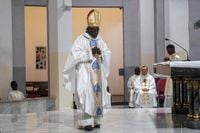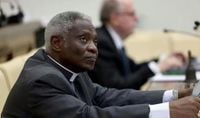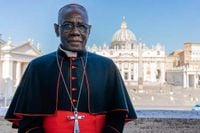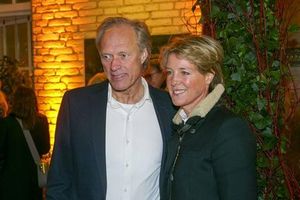The sudden death of Pope Francis on April 21, 2025, has ignited a wave of speculation regarding his successor, with Cardinal Robert Sarah emerging as a prominent candidate. As a traditionalist from Guinea, Sarah has garnered significant attention from conservative factions within the Catholic Church, who view him as a potential leader to steer the Church back toward its orthodox roots.
Cardinal Sarah, born in 1945, has dedicated much of his life to the service of the Church, holding various high-level positions in the Vatican administration. He was notably the prefect of the Congregation for Divine Worship and the Discipline of the Sacraments until his retirement in 2021. His theological approach is deeply rooted in tradition, making him a reference for those advocating a return to conservative Catholic practices and doctrine.
Following the announcement of Pope Francis's death, social media has been abuzz with endorsements for Sarah. Many netizens are rallying behind him, calling him "our hope" and suggesting that he could be the next pope. One user expressed, "The Church’s redemption and salvation has a name: Cardinal Robert Sarah." This sentiment reflects a broader desire among some Catholics for a leader who aligns with traditional values, particularly in the face of what they perceive as the Church's liberal drift under Pope Francis.
Sarah has been vocal about his opposition to restrictions on the traditional Latin Mass and the approval of blessings for same-sex couples, positions that have resonated with conservative Catholics. His defense of the traditional Mass, which he asserts has been celebrated for over 1,600 years, has become a rallying point for those who wish to see a return to more orthodox practices. He has warned against what he calls a "dictatorship of relativism," advocating for a Church that upholds absolute truths rather than succumbing to contemporary societal pressures.
In addition to Sarah, other candidates are also being considered to succeed Pope Francis. Among them is Cardinal Matteo Zuppi, the Archbishop of Bologna, Italy, who is 69 years old and a significant figure in the Italian Catholic Church. Another contender is Luis Tagle, born in Manila, Philippines, who serves as the pro-prefect of the Dicastery for Evangelization and is viewed as a modernizing voice within the Church. Malcolm Ranjith, the Metropolitan Archbishop of Colombo in Sri Lanka, at 77 years old, is also seen as a respected candidate on the Asian continent.
Pietro Parolin, the current Secretary of State of the Vatican, is another prominent name in the speculation, as is Juan José Omella, the Spanish Cardinal and current Archbishop of Barcelona, who, at 78 years old, has also attracted attention, albeit with fewer chances than others.
The upcoming papal conclave, where the College of Cardinals will convene to elect the 267th pope, is highly anticipated. Experts suggest that while the Church may lean toward a centrist candidate to maintain balance, Sarah's rising visibility and the energized conservative base could make him a serious contender. If elected, Sarah would not only become the first African pope in over 1,500 years but also signal a significant ideological shift within the Church.
Cardinal Sarah's outspoken views against modern trends, including what he describes as "gender ideology," have earned him both admiration and criticism. He has condemned same-sex marriage and has been a fierce advocate for the natural family, positioning himself as a defender of traditional Catholic teachings. His leadership style resonates with those seeking a return to the Church's ancient doctrines, and his candidacy has sparked enthusiasm among conservative Catholics who feel marginalized by recent reforms.
As the papal conclave approaches, the Catholic world is closely watching how the dynamics will unfold. The legacy of Pope Francis, known for his progressive stance on issues such as climate change, immigration, and LGBTQ+ inclusion, will undoubtedly influence the discussions among the cardinals. While Francis's reforms have garnered admiration globally, they have also sparked backlash from conservative members of the Church, creating a complex backdrop for the next pontiff's election.
In the wake of Pope Francis's passing, the question of leadership direction for the Catholic Church remains critical. The next pope will need to navigate the delicate balance between tradition and modernity, addressing pressing issues while also respecting the diverse perspectives within the global Catholic community. Whether Cardinal Robert Sarah will emerge as the chosen leader remains to be seen, but his candidacy reflects a significant moment in the Church's history.
As the world mourns the loss of Pope Francis, the emerging candidates, particularly Cardinal Sarah, highlight the ongoing debates within the Church regarding its future direction. With a rich history of tradition and a rapidly changing world, the next pope will face the challenge of leading a diverse and evolving congregation.






